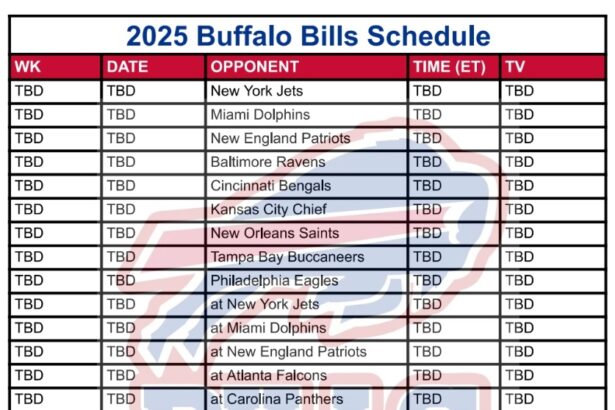“Kingdom of the Planet of the Apes” is a breathtaking continuation of its predecessor, evolving deeper into the reimagined world established in the previous trilogy. Caesar’s (the venerable leader whose memory still looms large over this burgeoning saga) legacy expands in a manner that draws parallels to our very own and how his actions are used for both noble and nefarious purposes. Situated approximately three centuries after the tumultuous events of “War for the Planet of the Apes,” this standalone entry serves as both a homage to its predecessors and a bold new beginning for the franchise.
Director Wes Ball breathes new life into this world set several generations in the future following Caesar’s reign, in which apes are the dominant species living harmoniously and humans have been reduced to living in the shadows. As a new tyrannical ape leader builds his empire, one young ape undertakes a harrowing journey that will cause him to question all that he has known about the past and to make choices that will define a future for apes and humans alike.
In the absence of Caesar, Noa (Owen Teague) assumes the central role, shouldering the responsibility of ushering in a new era. Noa’s character is meticulously crafted, exhibiting a nuanced balance of reverence for Caesar’s principles and a bold willingness to question and re-evaluate them. Teague’s multifaceted portrayal of Noa is crucial to the narrative, as his reinterpretation of Caesar’s seminal mantra – modifying the phrase from “Apes together strong” to “No, together strong,” with humanity incorporated – establishes the philosophical, biblical and ideological foundation for the trilogy’s future development. Noa is our guide through this new era and evolution, ultimately becoming the heart of this new chapter. He’s a kind and resolute young ape. Forced by circumstances to defend his home, the Eagle Clan, Noa embarks on a journey of self-discovery during which he wrestles with who to trust and must draw upon his inner strength along the way. Throughout his journey Noa encounters feral human Mae (Freya Allan) and perhaps my favourite character the orangutan Raka (Peter Macon).
As a lifelong fan and enthusiast of the Planet of the Apes franchise, I have always been fascinated by its recent modern trilogy, helmed by Rupert Wyatt (Rise) and Matt Reeves (Dawn/War). My admiration for Dawn of the Planet of the Apes specifically is particularly noteworthy, making it a daunting task for any subsequent director to follow in their footsteps. Wes Ball, known for his work on the Maze Runner trilogy, was announced to take the reins of the franchise. Initially, I adopted a cautious approach, eager to witness his take on the series. With “Kingdom of the Planet of the Apes”, Ball has not only met but exceeded my expectations, delivering a cinematic coming-of-age journey that transcends. This film is not only a worthy continuation of the franchise but also a profound exploration of complex themes, including family, community, trust, and cooperation, which resonated deeply.
“Kingdom of the Planet of the Apes” is a stunning visual achievement, showcasing WETA’s unparalleled mastery of digital effects. The team’s impressive craftsmanship effortlessly goes beyond the boundaries of CGI, rendering the apes as photo-realistic as possible as these captivating characters will leave you fully invested in their world. The meticulous attention to detail in their movement, facial expressions, lip movements, and fur is particularly noteworthy thanks to the visual effects artists and the actors who embody and perform as these characters through motion/performance capture, adding to the overall sense of authenticity and immersion. Furthermore, the film’s ambitious scope, and world-building delve deeper into the complex society of ape civilisation than ever before in the Planet of the Apes franchise, which is a testament to the filmmakers’ vision and dedication to pushing the boundaries of storytelling.

Screenwriter Josh Friedman brings such an impressive portfolio to the table which includes notable collaborations with Steven Speilberg, the latest being James Cameron on the Avatar franchise. Now he brings his expertise from the Na’vi to the Apes, taking the time to craft such nuanced relationships between these characters and their setting whether that would be the Eagle Clan’s homestead or Proximus Caesar’s kingdom. Skillfully he blends elements of the previous entries such as War’s horseback road-trip dynamic mixed with the intricate character arcs, motivations, and conflict from Dawn. But this being a new era for the franchise, Friedman introduces fresh concepts and ideas as the film delves deep into the fraught dynamics between humans and apes, refusing to simplify the multifaceted layers of conflict and coexistence that define their interactions. This commitment to maintaining the tension provides a rich soil for character growth and development and ensures that the general audience and die-hard fans remain invested in the journey of both species.
The addition of renowned actor Andy Serkis as a special consultant has yielded impressive results, as the new cast bring such a fresh yet faithful interpretation to the iconic franchise. While we acknowledge the pioneering work of the original cast, including Serkis, Karin Konoval, and Terry Notary, in their groundbreaking performances as Caesar, Maurice, and Rocket, it is undeniable that their absence is deeply felt. However, Owen Teague’s masterful portrayal of the lead character, Noa, infused with a sense of soulful sensitivity, helps to bridge the gap. Teague’s nuanced performance skillfully captures the complexity of the character’s personality, doubts, and perceptions of his world while still maintaining the essential essence of Caesar’s intelligence and goodness. Noa is on the cusp of a pivotal coming-of-age bonding ceremony, but as he embarks on his perilous quest, Noa finds an unlikely ally in Raka (Peter Macon), a wise and aged orangutan who follows the teachings of Caesar and shares with him the storied history of the first Elder’s leadership.

Peter Macon stands out in this role, becoming, in my eyes, a scene-stealer. Raka clings to the ideals of peace and coexistence embraced by Caesar. With unwavering hope, he seeks to impart Caesar’s wisdom to Noa and preserve Caesar’s legacy for a new generation. Unfortunately, the teachings in question have been increasingly misinterpreted and distorted to justify and condone behaviours that would be unacceptable to Caesar. Notwithstanding this, Macon’s performance is noteworthy for its humour, sincerity, and thought-provoking impact on the character of Noa, portrayed by Teague.
Kevin Durand delivers a majestic wonderful performance as the main antagonist, who is feared by all. Proximus Caesar is a force to be reckoned with. With his bloodshot eyes and imposing demeanour, the new ruler of the Ape Kingdom seeks to secure dominance by appropriating human knowledge and technology, ensuring the continued supremacy of his kind. Proximus is formidable alongside his army.
While Mae, the film’s central human character, may initially seem to conform to a traditional damsel-in-distress archetype, Freya Allan’s nuanced performance reveals a more complex and multifaceted individual. In her breakout cinematic role, Allan brings depth and richness to Mae’s character, which defies simplistic categorisation. As the story unfolds, Mae’s intentions become increasingly ambiguous, leaving the audience questioning her motivations and allegiances. Allan’s portrayal of Mae is marked by a subtle interplay of trustworthiness and cunning, which keeps the viewer in a state of uncertainty, mirroring the protagonist’s own conflicted emotions and assumptions. This masterful balance of traits not only adds depth to the narrative but also fosters a sense of emotional resonance and psychological complexity.

What sets “Kingdom of the Planet of the Apes” apart as a sequel is its innovative approach to the narrative of its predecessor. The film reimagines the original story as a deeply ingrained mythological framework, imbuing it with a sense of reverence and significance. The passage of time has erased the specific details of human history, leaving behind only remnants of decay and rebirth. However, when Noa is confronted with competing visions of the past and the world beyond his community, the void left by this forgotten history becomes a palpable character in its own right.
FINAL THOUGHTS
While the film is a visual feast for the eyes, it also has a substantial amount of heart, making it a complete cinematic experience. “Kingdom of the Planet of the Apes” left me yearning for more, eager to see where the story will take us next in this magnificent world. The film also resonated with me long after the credits rolled, which is a testament to the power of storytelling and visual artistry and a must-see for fans of the franchise. 20th Century Studios must invest heavily in this world, as Ball’s thoughtful dramatic approach and the detailed, nuanced motion-capture performances create a rich tapestry of personalities and backstories. These carefully crafted histories serve as the foundation for a thrilling new trilogy that builds tension and suspense as the stakes escalate, culminating in heart-pumping action sequences that are both physically and emotionally resonant.
TOGETHER STRONG


















